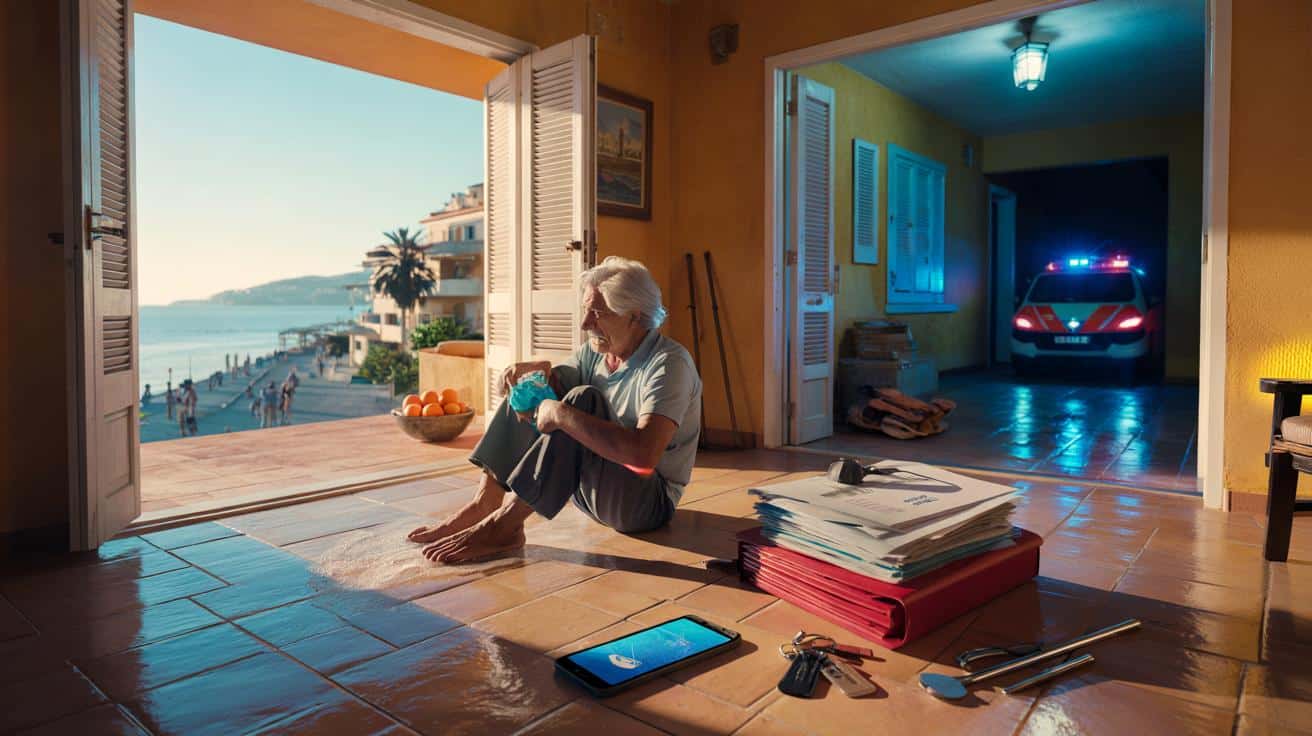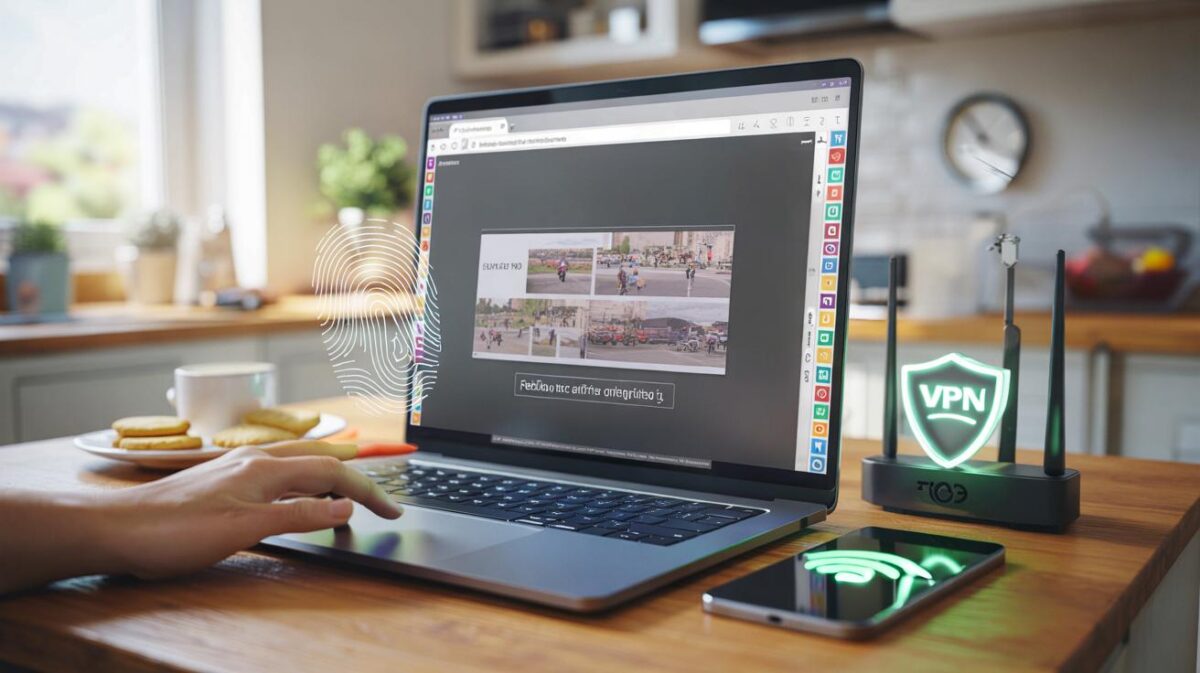You see yourself lighter, warmer, freer. Then real life taps your shoulder. It asks a question most glossy guides skip: who picks you up when you fall?
The night I learned it, the sea was loud enough to fill our little kitchen. The fan clicked like a metronome, and my phone lit up with a text I couldn’t translate. A neighbour’s dog howled, then stopped, like it knew the script. I opened the balcony door, slipped on the damp tile, and felt my hip go hot and wrong. I thought the hard part was over. The ambulance took 47 minutes. The paperwork took hours. The silence took all night. No one knew me. No one had a spare key. No one knew who to call. A small, cold truth arrived with the dawn.
It wasn’t the sun that made me sweat. It was the distance.
The bad-day tax they don’t put on the brochure
Retiring abroad sells itself in colours and numbers: blue water, half-price wine, kinder winters. You see the deal, and it looks fair. The missing line is what I now call the bad-day tax — the added cost of distance when life tilts. Language slows the hour that needs to go fast. Systems shuffle you sideways. You feel capable, yet somehow invisible.
I met David, 68, at the notary, trading photocopies like playing cards. He’d moved for the golf and stayed for the weather. Then his partner’s medication ran out on a bank holiday, and a pharmacy rule he didn’t know stranded them till Monday. He wasn’t angry. Just shaken by the fragility of their independence. There are over half a million UK state pensioners living overseas; most say the sunshine is real. So is the moment you need a shoulder and find a form.
The bad-day tax is not just paperwork. It’s geometry. Your family sits three time zones away, your bank sits behind two-factor authentication that wants a UK number, and your GP equivalent wants a document you left in a drawer. You’re still you, but your competence leaks through tiny holes — new words, new rules, new officials. It’s fine when the sky is kind. It’s different when you’re holding an ice pack and a pen.
Build a safety net before you leap
Here’s a simple drill that changes everything: rehearse a worst Tuesday. Pick a random weekday and pretend your phone is dead, your wallet is lost, and your knee hurts. Can you reach your “person” in 10 minutes? Can that person reach your door? Test it twice — during office hours and after dark. Map the clinic, not the beach. Make the calls you’d make in a panic, now, when you can still laugh.
People moving for retirement often over-index on charm and under-index on friction. Learn 12 words you hope you’ll never use: dizzy, allergy, blood thinner, insurance number, emergency contact. Put them on a card. Negotiate one local anchor — a neighbour, a landlord, a club secretary — who agrees, in writing, to be your knock-at-midnight call. On some days, friendliness isn’t enough. It needs a phone number and a front door.
Let your plan live on paper, not just in your head. Create a “Red Folder” with two copies of your ID, EHIC/GHIC or local health card, prescription list, next-of-kin details, insurer hotline, and a short medical summary. Put one at home and one with your anchor. You need a back-up human, not just a back-up plan. Let’s be honest: nobody actually does that every day.
“The sun fixed my bones but not my bad days,” Maria, 67, told me over coffee. “Once I understood that, I started enjoying it properly.”
- One anchor: a named local who can unlock your door and ride with you.
- One page: medications, allergies, diagnoses, blood type, GP contact.
- Two numbers: insurer and consulate emergency lines, taped inside a cabinet.
- Three copies: IDs and policies in your Red Folder, cloud, and with your anchor.
- Four phrases: “I need help”, “Where is the clinic?”, “Call this number”, “I have insurance”.
What nobody wants to say out loud
Loneliness isn’t just a feeling abroad. It’s logistics. The NHS is a phone voice now, not a waiting room. The customs you know don’t always translate. We’ve all had that moment when the room is too quiet and you wonder who would notice. This is the one thing everyone hides: the gap between dream and backup. Fill the gap, and the dream gets sturdier. No one tells you about the bad days. Say it once to yourself, then make a tiny plan that makes the next day easier. The sun feels warmer when it lands on a net.
There’s also the identity curve. You’re no longer a local by reflex, and that bruises the ego. Attach yourself to weekly anchors — a market stall, a volunteer shift, a walking group — that put names to faces. Choose a town with a clinic you can walk to, not just a view you can post. Ten minutes off the fantasy can add ten years to your comfort. The dream survives, but only when reality is invited in.
Money is part of the hidden story. Exchange rates wobble, utility bills spike in heatwaves, and visas come with fees that arrive like seasons. Build a “boring buffer” equal to six months’ costs in the local currency, parked where you can reach it fast. Be gentle with yourself on days when the admin wins. The goal is not perfection. It’s permission to need help without drama.
What the dream looks like with its shoes off
Retiring abroad still sings to me. I keep the window open in the evening and the air smells of oranges. Neighbours wave from scooters. It’s not a postcard. It’s a place where the butcher knows my name and the nurse now knows my allergy. The difference is a handful of phone numbers, a folder in the hall, and friends who will text back within minutes. Say it without shame: the good days are brilliant, and the bad days are manageable. That’s a life. There’s room for new rituals, for learning the word for “plaster”, for laughing at the accent you’re slowly earning. If you’ve felt that tug towards the light, you’re not alone. Tell someone the thing you’re scared of. Then write down the two things that would make it less scary.
| Point clé | Détail | Intérêt pour le lecteur |
|---|---|---|
| Bad-day tax | The hidden cost of distance when things go wrong: slower hours, new rules, fewer back-ups. | Names the risk so you can plan for it without panic. |
| Local anchor | One trusted person nearby with keys, your Red Folder, and permission to act. | Turns friendliness into real-world support at 3 a.m. |
| Rehearsal drill | Simulate a worst Tuesday: no phone, lost wallet, minor injury, both day and night. | Stress-tests your new life before you commit long-term. |
FAQ :
- Is retiring abroad still a good idea after Brexit?Yes, but it’s more of a process now. Residency, healthcare access, and driving rules vary by country, so research timelines and build in extra months for paperwork.
- Should I rent first or buy?Rent for at least a full year. You need to see the place in every season and test the bad-day routes before tying up capital and committing to specific neighbourhood quirks.
- How do I handle healthcare?Confirm eligibility for local cover, register on day one, and keep travel insurance for the gap months. Carry a medical summary and learn symptoms vocabulary in the local language.
- What about tax and pensions?Check double-tax treaties, inform HMRC, and keep a UK account if you receive a UK state pension. Exchange rate swings can hit income, so hold a cash buffer in local currency.
- How do I avoid loneliness?Choose a walkable area, join one weekly group, and set a standing call with family. Put effort into two friendships on your street. That’s your true safety net.
Some days, you will miss the easy shorthand of home. That’s fine, and normal, and part of the cost of learning a new place. Soyons honnêtes : personne ne fait vraiment ça tous les jours.









Is this a bit alarmist, or fair warning? Plenty of retirees thrive abroad with a tight circle and good prep. Still, the “bad-day tax” idea is uncomfrtably true.